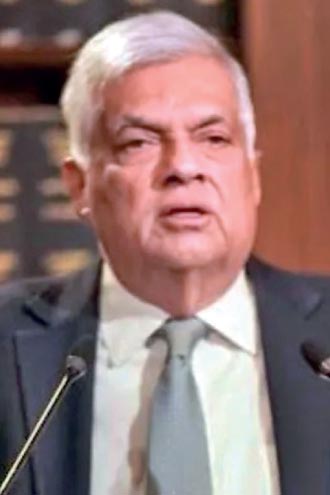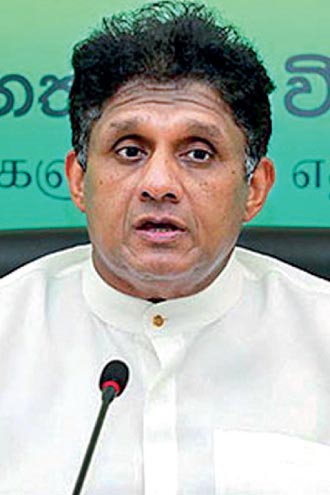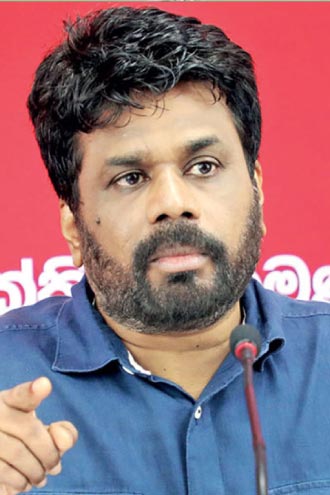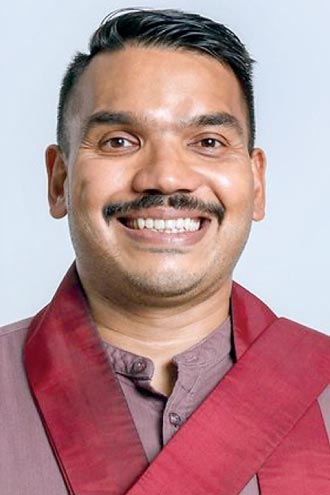Wednesday Feb 25, 2026
Wednesday Feb 25, 2026
Monday, 9 September 2024 00:07 - - {{hitsCtrl.values.hits}}
 |
| President Ranil Wickremesinghe |
 |
| Sajith Premadasa |
 |
| Anura Kumara Dissanayake |
 |
| Namal Rajapaksa
|
As Sri Lanka approaches a critical Presidential election that will shape the country’s future, Yukthi, a collective focused on debt justice and the economic challenges facing the nation’s working people has put forward 10 crucial questions to the Presidential candidates regarding their post-election economic policies. Yukthi has directed these questions in writing to the key candidates, including Ranil Wickremesinghe, Sajith Premadasa, Anura Kumara Dissanayake, and Namal Rajapaksa.
At a time when Sri Lanka’s leaders have emphasised that the IMF agreement is the only viable solution to the country’s economic crisis, dismissing any alternative Debt Sustainability Analysis (DSA), Yukthi has asked Presidential candidates to clearly articulate their position on the economic policies they intend to pursue post-election. The responses will play a crucial role in helping the Sri Lankan public make informed choices at the polls.
The 10 questions posed to the candidates are as follows:
1. What is your position on the International Monetary Fund (IMF) Agreement and debt restructuring process? Will you implement it, reject it, or renegotiate it? If you are renegotiating the agreement, what is your position with respect to the IMF conditionalities: specifically what clauses will you negotiate and with what objectives? How will you respond to the severe austerity measures that are rationalised as needed to generate the extremely high primary budget surplus targets (higher revenues through increased taxation and lower state expenditure)? The IMF’s Debt Sustainability Analysis (DSA) projects Gross Financing Needs (GFNs) – for external debt repayment of the principal and interest – to be 4.5% of GDP. Will you demand a more credible DSA with much higher haircuts from external creditors?
2. What is your position on the recently enacted laws on economic policies developed and passed without consulting people, such as the Economic Transformation Act, which, among other things, attempts to make questionable economic projections binding on future parliaments? Will you repeal the Economic Transformation Act and other problematic laws including laws restricting freedom of speech, association and assembly that enable people to express concerns relating to their economic and social rights?
3. People’s livelihoods and employment have been disrupted by the economic crisis. What is your position on social protection, including the Aswesuma program? Where do you stand on universal social protection? What percentage of GDP would you allocate for social spending, given the current meagre amount of 0.6% of GDP target in the IMF program? Austerity measures include reduced public spending in healthcare and education. What percent of the GDP will you be allocating for universal healthcare and public education?
4. During the COVID-19 pandemic and especially after the 2022 economic crisis, many households are experiencing food insecurity with malnutrition affecting children. What programme will you introduce for people to have access to affordable and nutritious food? What is your position on a universal food subsidy Programme?
5. Two years post-default, the working people are bearing the brunt of the economic crisis through VAT which is as high as 18%. Will you reduce and/or remove VAT to lessen the burden of unfair indirect taxation on the working people? If so, by how much and/or for what items? And what is your position on wealth taxes towards redistribution?
6. What is your position on the privatisation of public services including Ceylon Electricity Board (CEB), Sri Lanka Telecom and State Banks? What alternative reforms would you implement to protect strategic public assets and prevent a fire sale of essential services?
7. The market-pricing of energy has made fuel and electricity unaffordable to its citizens and it is having a severe impact on the livelihoods of fishermen and small-scale producers. What is your position on making energy accessible and affordable to low-income groups?
8. Domestic Debt Restructuring has led to a significant reduction in retirement funds. How will you redress this injustice to working people?
9. The cost of living has increased unimaginably since the onset of the economic crisis. What is the minimum monthly and daily wage that you will set, and how will it be calculated? Women are the backbone of our economy; what wages do you propose particularly for tea pluckers and garment workers?
10. Working people in many parts of the country, particularly Malaiyaha Tamils remain landless. What are your policies for land alienation and redistribution to ensure access to land for housing and agriculture?
Yukthi stresses that the answers to these questions will offer vital insights into the candidates’ economic policies and priorities, which are essential for voters to make their decisions. Given that economic stability is a decisive factor in shaping voter choices, YUKTHI calls on all presidential candidates to put forward clear and comprehensive plans that prioritise the needs and well-being of the people.
In a time of economic uncertainty, Yukthi believes it is critical for candidates to address pressing concerns such as debt restructuring, alternate DSA, cost-of-living, Government spending on social welfare systems, and economic growth that generates employment and livelihoods. The collective encourages candidates to propose practical solutions that will reduce the burden on working people.